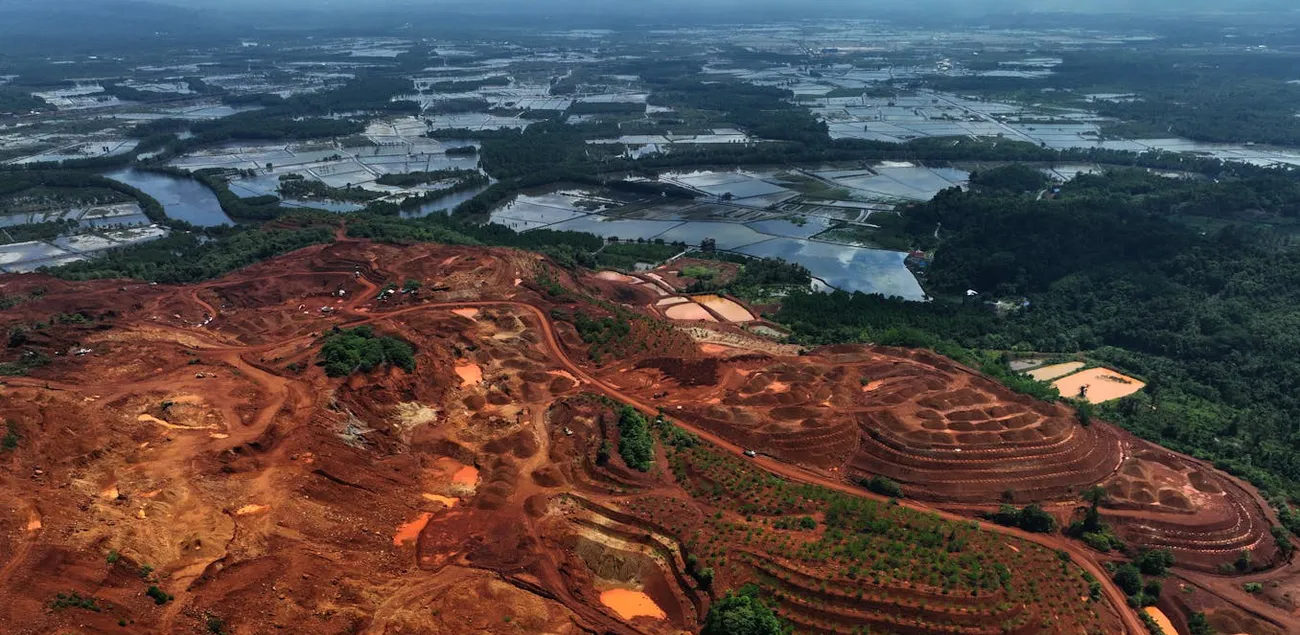
The Indonesian government, in an effort to control an acute oversupply of nickel ore, will reduce the validity period of its mining work plan permits (RKAB) from three years to one. The policy revision, which will commence in 2026, has attracted immediate objection from the nation’s miners, who caution it will hamper investment and cause excessive bureaucratic obstruction
The decision from Indonesia’s Ministry of Energy and Mineral Resources comes in direct response to a huge gap between approved production and market demand in reality. The Indonesian Nickel Miners Association (APNI) reports that the government has approved 364 million tonnes of nickel ore RKAB quotas for 2025. This contrasts sharply with market absorption in 2024, when only 220 million tonnes of a 319-million-tonne quota were consumed.
Policy Reversal Seeks to Tame Supply Glut
By compelling mining firms to reapply for permits every year, Jakarta hopes to acquire more nimble control of production levels and avoid the continued weakening of global nickel prices. The move is a sharp reversal of a policy enacted just last year, in 2023, which had lengthened the validity of permits to three years precisely with a view to lessening the administrative load on both miners and governmental authorities.
The fundamental problem the government is trying to solve is the widening disparity between its lofty production targets and the ability of smelters to absorb the ore. First-half 2025 data pegged actual ore absorption at around 120 million tonnes, well short of the rate needed to achieve the year’s huge approved quota. The resultant oversupply has been a primary force behind international nickel prices’ downward pressure.
Miners Caution on Investment Freeze and Bureaucratic Delays
The Indonesian Nickel Miners Association (APNI) has spoken out publicly, calling for the government to reverse the decision, claiming the step will harm the business environment. The group said that obliging thousands of miners to apply for approvals every year would necessarily cause bottlenecks in the licensing procedure.
APNI pointed out that medium-term certainty is critical for planning operations and obtaining the long-term capital investment required for exploration and the development of infrastructure. The group recommended that rather than reducing licensing durations and adding to bureaucracy, the government should attempt to enhance its internal assessment and supervisory capacity to more closely match approved quotas to actual market demand.
Implications for a Saturated Global Market
As the world’s leading nickel producer, regulatory change in Indonesia has direct global repercussions. In the short term, any bureaucratic delays in handing out the new yearly permits could cause ore supply disruptions from the Southeast Asian country.
In the longer term, the policy may have the perverse consequence of tightening the market. If APNI’s feared “investment chill” becomes reality, it may retard the development of new mining projects and eventually cut Indonesia’s future production potential. This is at a time when the global market is already grappling with a supply glut in large part caused by Indonesia’s own successful industrial policy, which induced a huge build-out of its domestic smelting capacity and suppressed global prices.
Company Background and Market Context
The Ministry of Energy and Mineral Resources of Indonesia is the national government agency responsible for overseeing the country’s immense mineral and energy resources. It is responsible for all policy, regulation, and the issuing of mining permits (RKABs). Its recent priority has been to extract maximum value from these resources by requiring in-country processing and the development of downstream industries.
The Indonesian Nickel Miners Association (APNI) is the major industry organization that lobbies for the welfare of nickel producers throughout the archipelago. It acts as an essential intermediary between miners and government administrators, advocating for policy issues, operational snags, and investment safety.
Nickel is a key industrial metal, whose main applications are the manufacture of stainless steel and as a key cathode material in electric vehicle batteries. Indonesia has placed itself as the global market’s central player, currently producing over half of the world’s mined nickel supply. The country has 44 active nickel smelters, with several other projects in the construction phase. This prolific growth, while successful in making Indonesia a processing giant, has saturated the market and is the underlying driver of the price volatility the government’s new permit policy now aims to manage.



